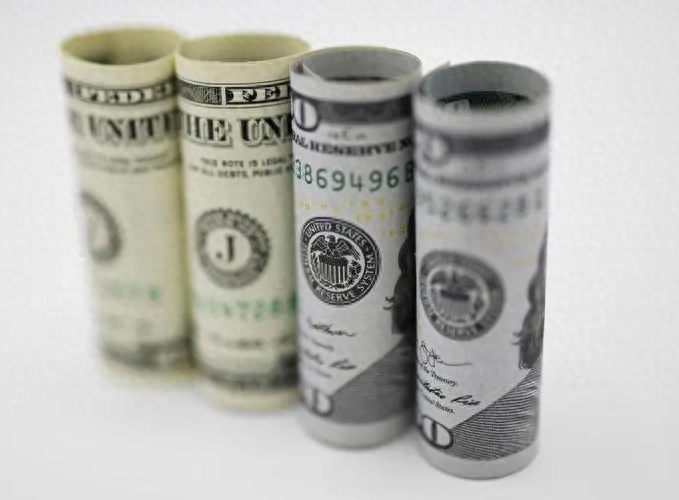Dollar Wealth Management Assets Double Amidst Interest Rate Uncertainty
November 2, 2024
Advertisements
The landscape of financial systems is evolving rapidly, and at the forefront of this transformation is the concept of digital currenciesAs nations worldwide embark on the journey of exploring central bank digital currencies (CBDCs), the United States is not lagging behind, positioning itself in the spotlight with its proposed digital dollarIn essence, the digital dollar aims to redefine the conventional financial interactions we are accustomed to, likely influencing both domestic and global economies.
The digital dollar, essentially a digital representation of the U.Sdollar, has gained significant traction as the Federal Reserve contemplates its implicationsUnlike physical cash, the digital dollar would exist solely in digital format, monitored and recorded through sophisticated technologies such as blockchainThis shift hints at a future where the reliance on tangible currency may diminish, paving the way for an efficient and seamless monetary exchange facilitated solely through electronic means, such as digital wallets.
The foundation for the digital dollar is built on the growing global acknowledgment of digital currencies
The introduction of China's digital yuan, for instance, has catalyzed a wave of interest and research into CBDCs among major economiesThe U.SFederal Reserve recognizes the need to keep pace with its counterparts, emphasizing the importance of carefully weighing the implications of a digital dollar across technical, legal, and privacy domains.
The anticipated advantages of a digital dollar are manifoldOne notable benefit lies in its potential to enhance the efficiency of financial transactionsCurrently, traditional banking procedures, including fund transfers and payments, can take several business days to completeIn contrast, the digital dollar promises real-time settlement, drastically reducing transaction times and costs while increasing liquidity in the financial markets.
Moreover, the digital dollar could democratize access to financial services, especially for underserved communities that lack conventional banking facilities
With just a smartphone, individuals in remote areas may transact in digital dollars, actively participating in the financial ecosystemThis may not only bridge the existing financial divide but also promote economic inclusivity and fairness.
Furthermore, the digital dollar could introduce new avenues for the Federal Reserve's monetary policy toolsEnhanced digital capabilities allow for more refined adjustments to interest rates and targeted monetary interventionsA historical analogy can be drawn from the financial stimulus distributed during the COVID-19 pandemicThe government’s strategy of issuing checks to citizens could be expedited through the integration of a digital dollar, facilitating quicker delivery and boosting economic activity more efficiently.
However, the implementation of a digital dollar is not without its hurdlesOne of the foremost issues is privacyWhile digital currencies can enhance transparency in transactions, this very transparency could lead to a concerning lack of confidentiality for users
The challenge for the Federal Reserve will be crafting a system that maintains transaction clarity without infringing on individual privacy rights.
Additionally, the underlying technology that would support the digital dollar carries inherent risksThe dependence on advanced blockchain technologies raises questions regarding reliability and security, as these systems have not been comprehensively validated at larger scalesThe potential for cyber-attacks or technical failures could destabilize the financial infrastructure, leading to widespread chaos unless extensive preventive measures are put in place.
The introduction of a digital dollar might also disrupt the traditional banking frameworkAs intermediaries in savings and lending, banks could see their roles diminished by direct transactions involving a central digital currency, risking an outflow of depositsIf this scenario were to unfold, financial institutions would likely need to adapt their operational models to stay relevant in this new economic environment.
On a global scale, the implications of a digital dollar would extend well beyond U.S

bordersThe dollar already occupies a dominant position as the world's reserve currency, and the efficient functioning of a digital version may further solidify its international standingFor instance, if the U.Seffectively facilitates cross-border payments and international settlements through a digital dollar, it could reinforce the dollar’s global influence and establish it as the preferred currency for global trade.
However, the rise of the digital dollar may induce competitive pressures on other nations to accelerate their own digital currency initiativesA successful launch of the U.Sdigital dollar could compel other countries to enhance their digital currency strategies, anticipating shifts in global financial dynamicsThis competitive environment might invoke a rapid evolution in national digital currencies, leading to a race toward innovative financial solutions.
Geopolitical challenges could also accompany the international rollout of the digital dollar
Nations may express concerns regarding the potential for increased American dominance in the global financial arena, prompting them to elevate their own currency initiatives or restrict the digital dollar's usage in certain localesThis could engender a complex game of financial diplomacy and strategy, compounding the intricacies of the global financial landscape.
Looking ahead, the prospect of the digital dollar ushering in a transformative phase for the global financial network is tantalizing yet fraught with uncertaintiesWhile it promises efficiency and inclusivity, the path toward its implementation requires addressing crucial challenges, including technological reliability, user privacy, and its ramifications for existing financial institutions.
The future of the digital dollar as a "new standard" in global finance remains to be seenIts potential to revolutionize monetary practices could redefine how countries engage with digital currencies, influencing global economic dialogues
Leave A Comment